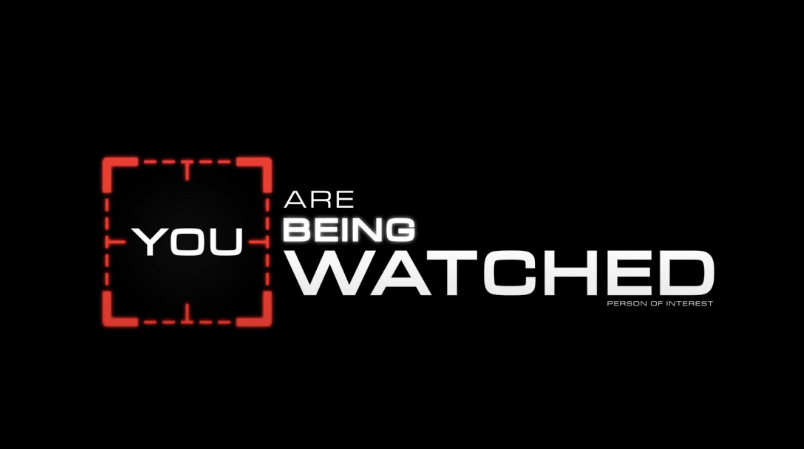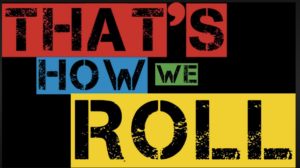You are what you do! People you work with or that work for you watch what you do and how you handle situations. These observations are an important input to how they experience you. What are they seeing?
Ever wonder how much co-workers notice what you do or what people see when they watch you? Put what you say to the side. Before you even get to that, people observe what you do, how you do it and formulate, reaffirm or refute perceptions they have about you.
You are what you do!
I Heard You Were Going To Be Here Today
I traveled every week for my last job. I covered a good size patch of the US and made it a point to be out there as much as possible. It was liberating in many ways as I could be where I wanted for the most part. On any given day no one knew where I was going to show up.
Wrong, I learned.
I would get texts and emails, “I hear you are on your way to this city or that city.” I didn’t post my schedule anywhere, so it evoked some discomfort. It also spurred a little comfort. Who doesn’t want to be noticed and relevant?
As a formal or informal leader, you are out there for people to watch. Your habits small to large are on display every bit as much as intentional acts or what you say. The question, what do your behaviors relay to those around you?
In a recent post, I dug into the topic of leadership brand. Observations are one of the inputs to your leadership brand. If you haven’t yet read that, take a look:
Is Your Personal Leadership Brand Actually What You Think?

Pressure Is Privilege
If you are saying, no thanks I don’t want people watching my every move. It’s too late, they already are. When they stop caring where you are or what you do you and your mandate are in trouble.
Pick your poison. I once heard a sportscaster say “pressure is privilege.” He was right.
For this discussion let’s confine ourselves to what people see when they watch you rather than your direct interactions and communications with them. We’ll examine what’s on display in two broad categories, how you:
1. Operate in the business
2. Carry yourself as a person
You can’t nor should you worry about avoiding life’s situations. Also, I’m not suggesting your obsess about what people observe and think. Most important, it’s an opportunity to consider what you give off and are you sending the messages you want?
One final note before we dig in. Included below are a listing of situations and times people observe you. While there is no lecture intended here, my point of view on a few of these eek out!
How You Conduct Business
What people see when they watch you are in part defined by how you carry out your role. Here is a sampling of situations you encounter:
Handling difficult situations
Challenges will present such as a critical employee departure, facing a confrontation in a meeting or a bad client/customer outcome. Each of these requires a steady hand, intense listening and responding with a calm confidence
You make a mistake
It will happen. Something you do or say, a decision will reveal an error. Owning it is the way to go. Some people can’t get there but if it warrants a straight up apology, do it.
Real life strikes
Someone on your team or family member is dealing with a difficult personal situation (illness, child/elder care). How you respond, stay appropriately in touch and follow up are essential. I was fortunate to work in an environment where people rallied particularly well in real life situations. It affects people, engenders a particular kind of loyalty and most important helps them during life’s most difficult moments.
All of the above situations provide fantastic opportunities to demonstrate patience, humility, and some humanity. Each is attractive leadership attributes.
Meetings You Hold
Do you demonstrate care and respect for people’s time through prepared agendas, keeping the meeting on track, ensuring actions steps with responsible parties?
For 1:1’s, do you go to people’s office or have them in yours? If you have one of those traditional looking offices, do yourself and everyone else a favor and go to their office or a conference room. Even better take a walk, grab a coffee. It makes an impact on people if you don’t hold court and take the effort to go see them.
Email habits
Do you email or respond principally during work hours or any time of the day, night, or weekend? Will you take things off-line when a thread gets funky or reply to all? Do you respond to everything or let people handle what they handle?
Norms for entertaining clients or employees
What do people observe about how you entertain? Do they see a genuine concern about where and how? Attention to detail without overdoing is a useful guidepost.
As a leader, you also set a tone about how you spend money. I used to work for someone for whom money was no object. It’s impossible to rationalize and explain not giving raises when the wine tab for dinner is in the thousands of dollars.
Preparation
Do you do the work beforehand? This includes getting to the pre-reads for meetings you attend, doing the research about somebody new you are going to meet and getting your list of questions together for the interview on your calendar.
Rehearsals
This is a particular category of preparation. Do you show up and practice for the sales pitch or that award presentation you are a part of?
There is a common thread of respect for people and situations available in all of these. How much you give, the care you take says a lot.
Finally, are you consistent? Do people experience you in such a way that they know what to expect from you or are people unsure how which version of you might show up?

How You Roll
What people see when they watch you also include glimpses of your personal side and style. Areas they observe include:
Humor
Do you and if so how do you use humor to relax the troops, release the tension or lighten the mood? Almost every workplace provides material for comedic relief. It’s rough to work in a place where humor can’t get in.
How you travel
This is how you handle the downtime and sometimes odd moments that evidence during travel. You learn a lot about people when you spend a day dealing with travel delays and being hangry. Patience, humor and occasionally grace are required. Watching a co-worker and particularly someone senior “lose it” over a travel inconvenience is embarrassing and painful to forget.
One other item on travel. You set a tone based on whether your trips are all during working hours or only will take night and Sunday flights. Travel is hard on people’s mental and physical well being. Doing all of it after hours time takes a toll. You can do it, expect it but also know burnout will follow. And Sunday flights are a turn off anyone and everyone.
Related: Inconvenience Gives Way To Perspective If You Allow
Always on or can you turn it off
What and how much of yourself you share tell people if you can or will occasionally turn it off There is a continuum of under-sharing to oversharing. Both have a sense of awkwardness albeit for different reasons. There is a “just right” in there somewhere.
Work-related social functions
Do you attend work-related social gatherings, a select few or none? Are you engaged or do you do a quick drive-by to say you were there? Nobody can or even should attempt to go to everything. Depending on the organization these functions very much matter. You need to figure out how to engage in the culture without sacrificing your personal life.
Electronic devices
Is your smartphone — on the table and face up you so you can see a message pop up, face down on the table pinging, in your pocket pinging or out of sight and silent?
I’m not sure there is anything more off-putting in the modern work environment than monitoring a cell phone while you meet with someone.
Meals
Do you eat at your desk, hang out with the group in the lunch room, catch people impromptu or ask people to spend time 1:1 over meals. There is no right or wrong answer here. Sharing a meal remains a great way to connect with people. On the flip side, there is the giving yourself a break thing.

Vacation and holidays
How do people experience your vacations? Do you show up for calls? Or email all times of the day or use the excuse of being six hours ahead?
Full transparency, I was terrible at this. I sent way too many emails and spent too much time on conference calls from beautiful places. No one was to blame other than me. I regret it for my travel companions and for the terrible message it sent to my team. I wanted people to go on vacation. Demonstrating it would have spoken volumes.
Dress
There are a few elements to this. How do you show up versus the policies and the norms? Does your style scream expensive or tasteful? Do you partake in casual days? After hours can people catch a glimpse of the relaxed you?
Balancing family and work
What do you model a balance of family, real life and work? Do you attend to whatever and whoever is important in your personal life? Doing this sends a powerful message no memo can approach.
Have You Decided What People See When They Watch You?
Perhaps you have a big ‘so what’ or a ‘what the heck am I supposed to do?’
My suggestion is to neither ignore or over index. Recognize the privilege as well as the responsibility that holding a leadership role means people around you care what you do and how you do it.
Your guide is a firm grounding on how you want people to experience you. This ensures you act with intention and without anything you do feeling contrived or calculated.
No one expects perfection. Consistency and core values as always, carry the day!
Additional Resource: The 6 Most Important Times Your Employees Are Watching You


